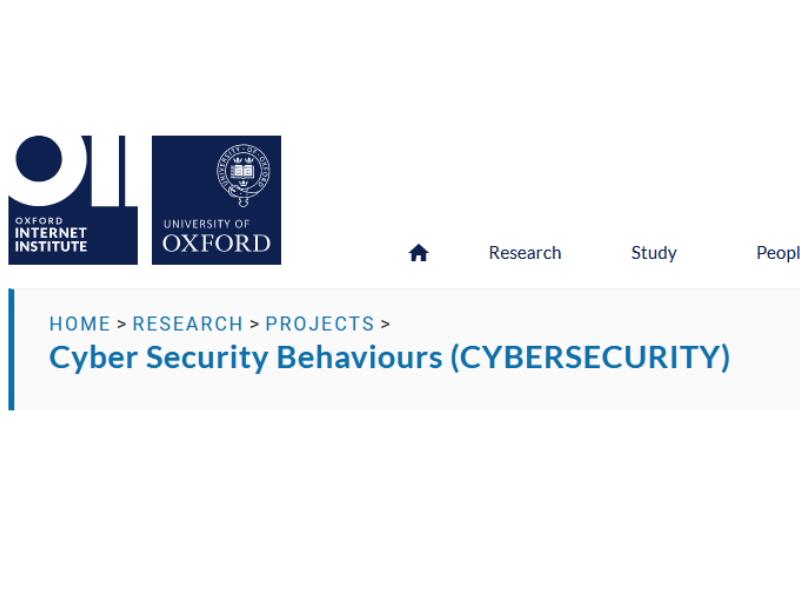
CYBERSECURITY
Cyber Security Behaviours (CYBERSECURITY)
Niccolò Zazzeri
01 August 2018
31 July 2020
EC funded project
A recent wave of cyberattacks has made it evident that cybercrime is a growing global concern. Numerous threats such as malware infections, phishing attempts and identity thefts can have disastrous consequences for citizens, firms and nations. Cybercrime, defined as crimes where expertise about cyberspace is used to violate the law, is an increasing threat due to criminals’ creativity, faster digitization, growing dependence on technologies and huge data accumulation. The growing social and economic impact of cybercrimes has urged international organizations, businesses, and universities to develop strategies in order to expand our current understanding of the phenomenon.
The first research undertaken in this field focused on technical forms of cybercrime, measures, and their economic consequences. However, despite using state-of-the-art technical security systems, people and organizations continue to experience security breaches. Whatever the quality of the technical layer of security, the ultimate security depends on appropriate end user behaviour. While many people recognize the importance of safe practice on the internet, many do not engage in proper safeguarding behaviours.
In such context, our research question is: what are the determinants of individual cyber security behaviours? We aim to understand the range of cyber security behaviours, using the example of students in France and the UK.
Category:
- Human aspects of cyber security
Vertical Category:
- ICT
Resources for EU Research
Resources for SMEs
News & Events
Reports
Cyberwatching.eu has received funding from the European Union’s Horizon 2020 research and innovation programme under grant agreement No 740129. The content of this website does not represent the opinion of the European Commission, and the European Commission is not responsible for any use that might be made of such content. Privacy Policy | Disclaimer / Terms and Conditions of Use

